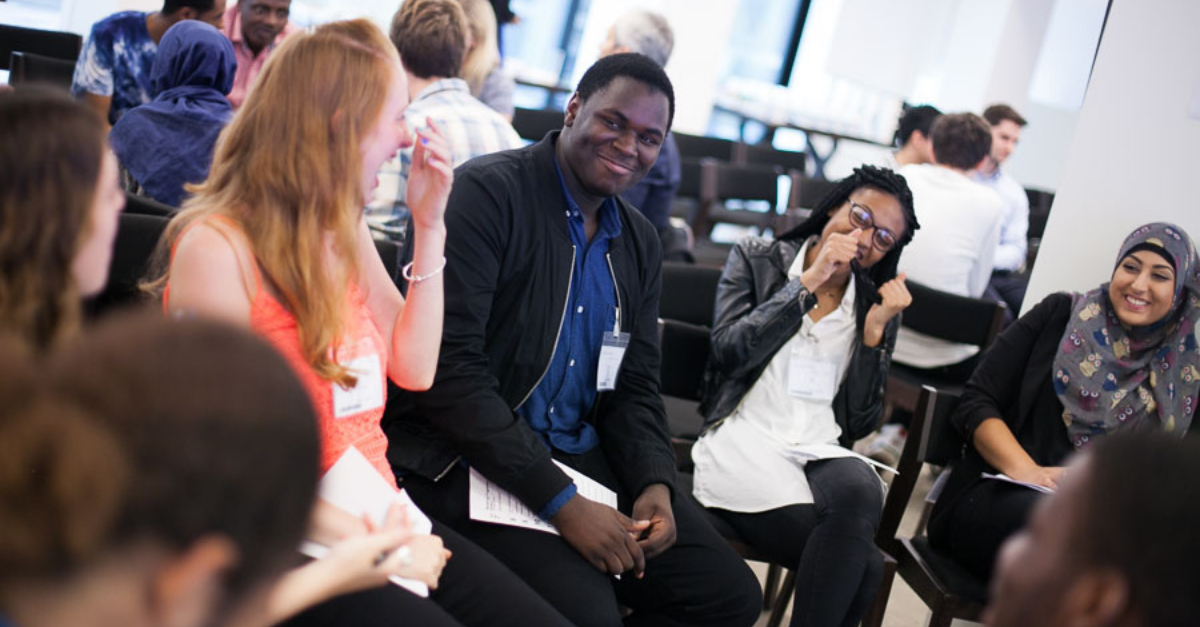
© IntoUniversity 2020
“Research shows that young people from the UK’s most disadvantaged postcode districts are nearly five times less likely to go to university than those in the most advantaged areas.” IntoUniversity
Even in times of stability, it is harder for less advantaged young people to succeed. Now, the COVID-19 pandemic is poised to widen this gap – a gap that LSE’s Lee Elliot Major and Stephen Machin estimate will leave disadvantaged students a further four to six months behind.
Such setbacks will have significant, lasting implications for both higher education and the world of work.
This week, we want to highlight the great work that our charitable partner, IntoUniversity, is doing in this space, and how it is responding to the crisis.
IntoUniversity supports less advantaged students
Starting out in 2002 as a homework club in North Kensington, IntoUniversity’s founders were shocked by the scale of student underachievement amongst Britain’s poorest families.
Eighteen years on, and the UK-based education charityprovides local learning centres to support young people from disadvantaged backgrounds. With innovative programmes, they help students attain a place at university and offer guidance for their future career.
Reacting to the pandemic and exam biases
When the UK government closed schools in March this year, IntoUniversity acted quickly by running a virtual service of online and telephone support, which helped students who were isolated at home.
IntoUniversity knew the singular impact that school closures would have on disadvantaged students. Some did not have the space to work at home or were socially isolated. Others were unfamiliar with online study or did not have reliable internet access and IT equipment. School closures also made some young people vulnerable to risks within their home environment.
The recent handling of A-level results also severely impacted many disadvantaged students. IntoUniversity called on the government to make grading fairer. We encourage our readers to follow the link to IntoUniversity’s statement on precisely how they recommend tackling educational inequality.
Fair treatment of students, built on lasting relationships
From choosing their GCSEs to deciding where and what to study at university, 16 to 18-year-olds have always faced tough decisions about their future. Now, disadvantaged students have to make them amid a pandemic, and several months behind their more privileged peers.
To help bridge the gap of lost learning, IntoUniversity will focus on supporting families through long-term relationships with students local to their centres, encouraging them to succeed in the face of adversity.
[Please format this sentence as a quote] In 2019, 68% of IntoUniversity students progressed to university compared with 41% of all students nationally.
Eilis O’Donnell, Head of Learning Recovery at IntoUniversity, says that, “‘We will be focusing on how to tailor our programmes and approaches to best serve our young people. In the short term, that means working closely with schools to understand their needs, any changes that are ahead, and what the most important support is that we can provide to them.”
The Aldrich & Co team mentors disadvantaged students
At Aldrich & Co, we are inspired by IntoUniversity’s responsible and responsive attitude in tackling crisis. We assist the charity with its key theme of employability support, helping students to transition from school to work. The Aldrich & Co team looks forward to mentoring and giving insight into the professional careers available to IntoUniversity’s student cohort.
*
We see so many talented individuals come through Aldrich & Co’s doors, and we know it is in everyone’s interest to ensure that disadvantaged young people get the necessary education and career support to help them prosper in later years.